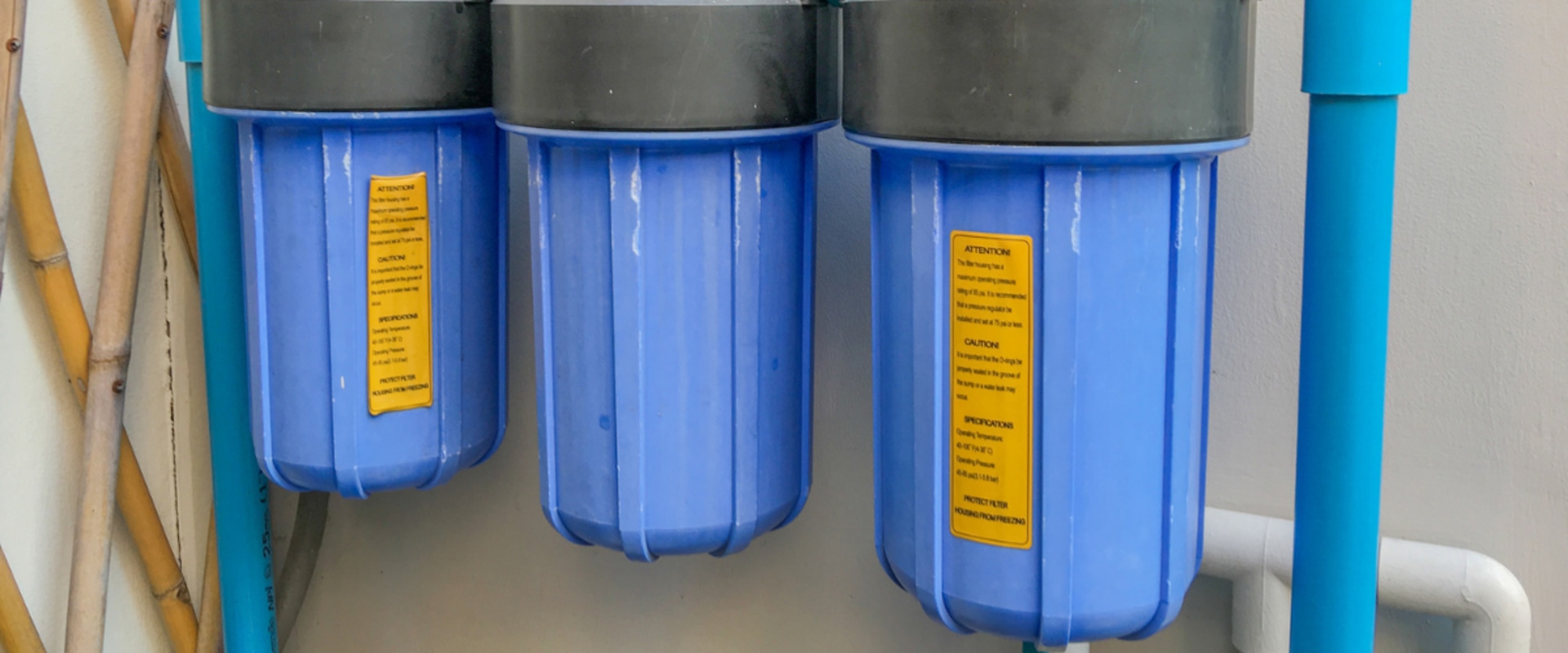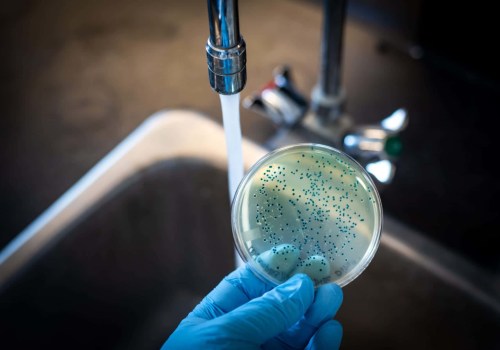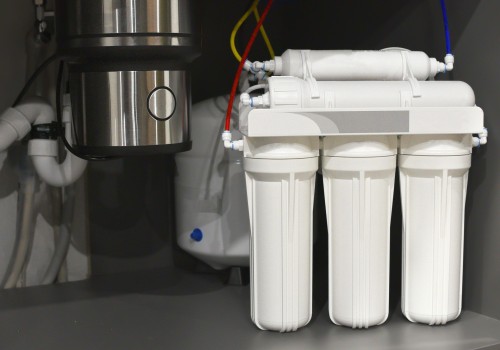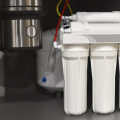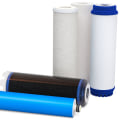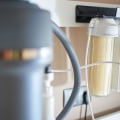Crystal Clear Insights: Sorting Reality from Water Filter Myths
Are you tired of feeling like you're swimming against the current when understanding water filters? It's time to dive into the truth and dispel those myths once and for all.
This article will separate fact from fiction as we explore the importance of clean drinking water and how water filters work. You'll discover the benefits of using these filtration systems and learn what factors to consider when choosing one.
So grab a glass because it's time to quench your thirst for knowledge.
Key Takeaways
• Contaminated water can lead to the spread of waterborne illnesses, making access to clean drinking water crucial for preventing transmission of diseases.
• Common misconceptions about water filters include the belief that bottled water undergoes the same rigorous filtration processes as home filters and that boiling water can effectively remove all contaminants.
• Different types of water filters use various mechanisms, such as activated carbon filters, reverse osmosis filters, and UV sterilization filters, to remove contaminants and improve the taste and quality of drinking water.
• When choosing a water filter, factors include upfront and long-term costs, sustainability, maintenance requirements, the filtration method, filter lifespan, and maintenance impact on effectiveness and efficiency.
Understanding the Importance of Clean Drinking Water
Clean drinking water is essential for maintaining good health and well-being. The impact of contaminated water cannot be underestimated, as it can spread waterborne illnesses. These illnesses are caused by harmful pathogens, such as bacteria, viruses, and parasites, that contaminate the water supply.
When consumed, these pathogens can cause various symptoms, including diarrhea, vomiting, stomach cramps, and even more severe conditions. In fact, according to the World Health Organization (WHO), around 485,000 deaths yearly are attributed to diarrheal diseases caused by unsafe drinking water.
Therefore, ensuring access to clean drinking water is crucial in preventing the transmission of these diseases and protecting public health.
Common Misconceptions about Water Filters
Don't believe the misconceptions about water filters - they are not as ineffective as people may think.
There are several myths surrounding water filter effectiveness that need to be debunked. One common misconception is that water filters don't remove all contaminants from the water. However, studies have shown that high-quality filters can effectively remove many impurities, including bacteria, viruses, heavy metals, and chemicals.
Another myth is that bottled water is safer than filtered tap water. In reality, many bottled waters are sourced from municipal supplies and may not undergo the same rigorous filtration processes as home filters.
Additionally, some people believe that boiling water is sufficient for purification. While cooking can kill bacteria and some parasites, it does not remove other contaminants in the water.
It's essential to understand the actual effectiveness of water filters to make informed choices about your drinking water quality.
How Water Filters Work
Water filters use various mechanisms to remove contaminants, ensuring it is safe and clean to drink. Understanding how these filters function can help you choose the right one for your needs.
Different types of water filters are available in the market today, each with its working mechanism. The most common type is activated carbon filters. These filters use activated carbon beds to trap impurities like chlorine, pesticides, and volatile organic compounds (VOCs). They are effective at improving taste and odor as well.
Another type is reverse osmosis (RO) filters. These use a semipermeable membrane to remove larger particles like lead, arsenic, fluoride, and other dissolved solids. RO filters can produce high-quality drinking water but may be slower than different types.
UV sterilization filters utilize ultraviolet light to kill bacteria, viruses, and other microorganisms in the water.
Knowing the working mechanisms of different types of water filters will help you make an informed decision when choosing one for your home or office.
Benefits of Using Water Filters
Using a water filter can significantly improve the taste and quality of your drinking water. There are several advantages to using a water filter in your home.
First and foremost, it removes impurities such as chlorine, lead, and bacteria that may be present in tap water. This enhances the flavor of your drinking water and reduces any potential health risks associated with these contaminants.
Additionally, water filters can provide cost savings by eliminating the need for bottled water purchases. They are also more environmentally friendly since they reduce plastic waste.
Moreover, using a water filter ensures that you have access to clean and safe drinking water at all times, regardless of any issues with the municipal water supply.
Overall, investing in a good quality water filter is worth considering for its numerous advantages.
Factors to Consider When Choosing a Water Filter
When choosing a water filter, it's essential to consider factors such as filtration method, filter lifespan, and maintenance requirements. These factors can significantly impact the effectiveness and efficiency of the filter. Here are three critical considerations for you to keep in mind:
1. Cost considerations: It's crucial to evaluate the upfront cost of the water filter and its long-term costs. Consider factors like replacement filters and energy consumption to determine the actual cost over time.
2. Environmental impact: Look for filters designed with sustainability in mind. Opt for ones that use renewable materials or have recyclable components. You can reduce your carbon footprint and contribute to a healthier planet by choosing an eco-friendly option.
3. Maintenance requirements: Some filters require more frequent maintenance than others. Consider your lifestyle and schedule when selecting a water filter. Look for options that align with your ability to perform regular maintenance tasks like replacing filters or cleaning cartridges.
Maintaining and Caring for Your Water Filter
Regularly clean and replace the necessary components to keep your water filter operating at its best.
Water filter maintenance is crucial for ensuring your filter provides clean and safe drinking water. A critical aspect of care is cleaning the filter cartridge or membrane. Over time, these components can become clogged with debris, reducing their effectiveness in removing contaminants from the water. Cleaning them regularly will help maintain optimal performance.
Replacing filters as the manufacturer recommends is essential to ensure they continue effectively removing impurities. If you encounter any issues with your water filter, such as a decrease in water flow or unusual taste or odor, troubleshooting may be required. This may involve checking for blockages or contacting customer support to resolve the issue promptly.
Making an Informed Decision About Water Filtration
While various types of water filtration systems are available, it is essential to understand your specific needs and research different options before making a decision.
When considering water filter effectiveness, comparing different water filtration methods can help you make an informed choice.
One common type of water filter is an activated carbon filter, which adsorbs contaminants such as chlorine and volatile organic compounds.
Another option is reverse osmosis filters, which use a semipermeable membrane to remove impurities from water.
Additionally, ultraviolet (UV) filters utilize UV light to kill bacteria and viruses in the water.
Each method has its pros and cons regarding cost, maintenance requirements, and the types of contaminants they can effectively remove.
Frequently Asked Questions
Are all water filters the same?
Some water filters are different. There are different types available that vary in terms of their effectiveness. Choosing the right filter is essential based on your specific needs and contaminant concerns.
Can water filters remove all contaminants from the water?
Water filters cannot remove all contaminants from water. They have limitations and can only eliminate certain pollutants, such as chlorine, lead, and bacteria. Other contaminants like pesticides and pharmaceuticals may require additional filtration methods.
How often do water filters need to be replaced?
Water filters are like superheroes protecting your health. They have a 2-6 months lifespan, depending on usage and filter type. Regular maintenance, like cleaning and flushing, can extend their life.
Are water filters effective in removing bacteria and viruses?
Water filters have advanced technology, making them highly effective in removing bacteria and viruses from water. This has significantly impacted public health by providing clean and safe drinking water.
Can water filters improve the taste of water?
Water filters can indeed improve the taste of water. By removing impurities and contaminants, they make your water cleaner and fresher. Regular maintenance is essential to ensure optimal performance and prolong the lifespan of your filter.
Earthwise Water Filters Phoenix
922 N Colorado Street, Gilbert AZ 85233
(602) 878-6160
